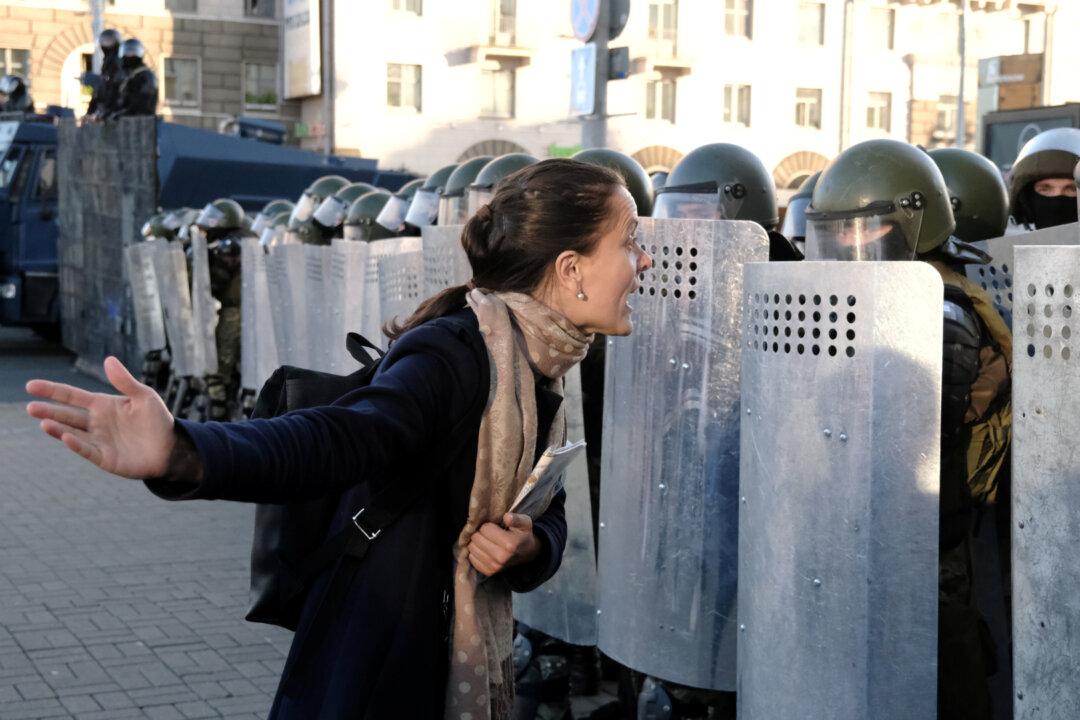MINSK, Belarus—More than 100,000 Belarusians marched through the capital Minsk on Sept. 20 in the sixth straight weekend of protests against President Alexander Lukashenko, keeping pressure on the veteran leader to quit.
Many walked in a vast column that stretched several miles, decked out in red-and-white opposition colors and chanting “go away,” as helmeted riot police patrolled the streets with water canons on hand, a witness said.





